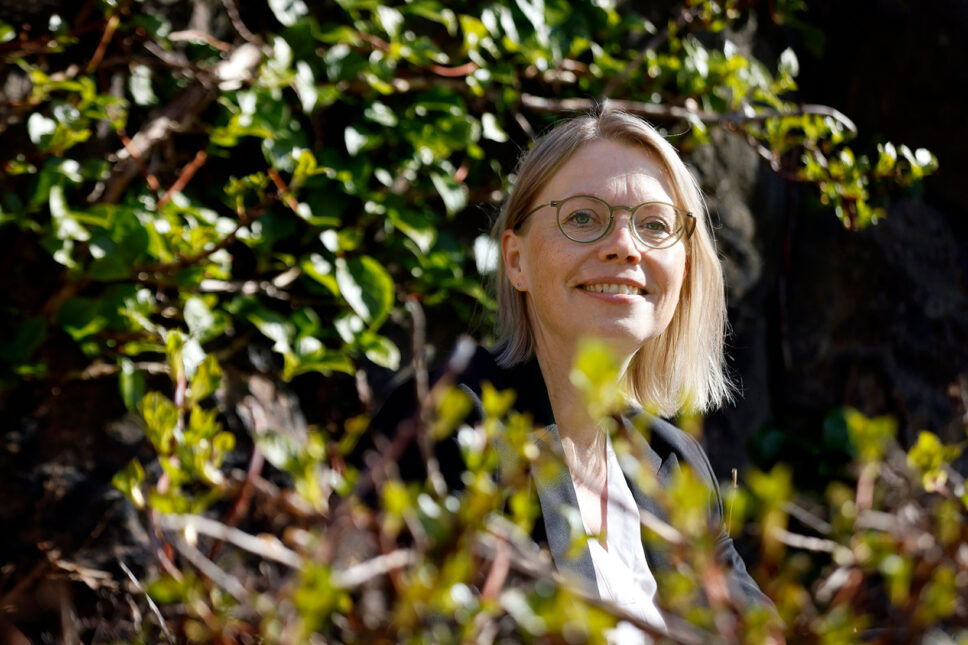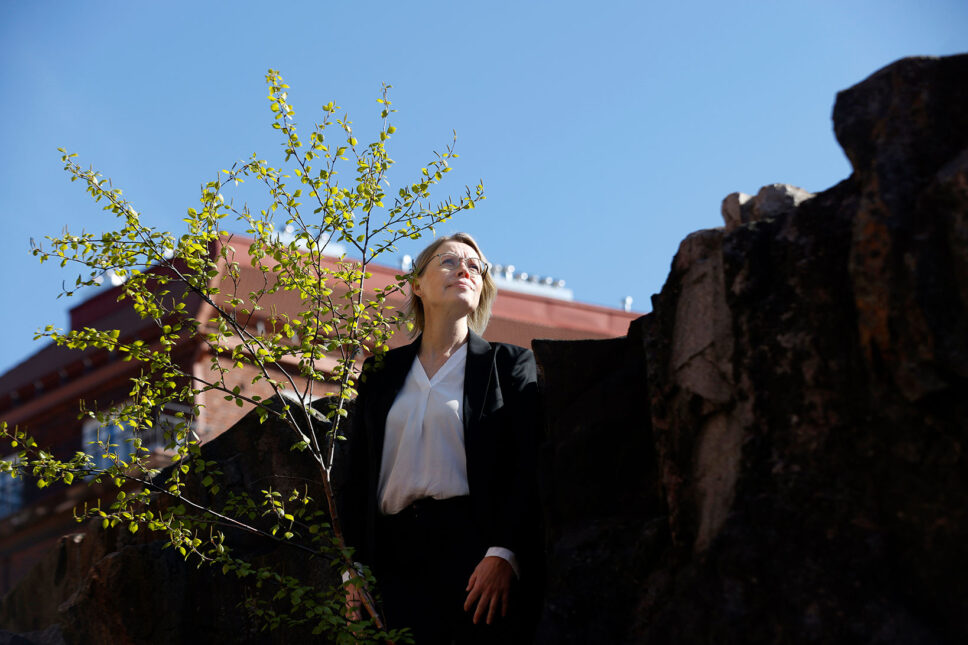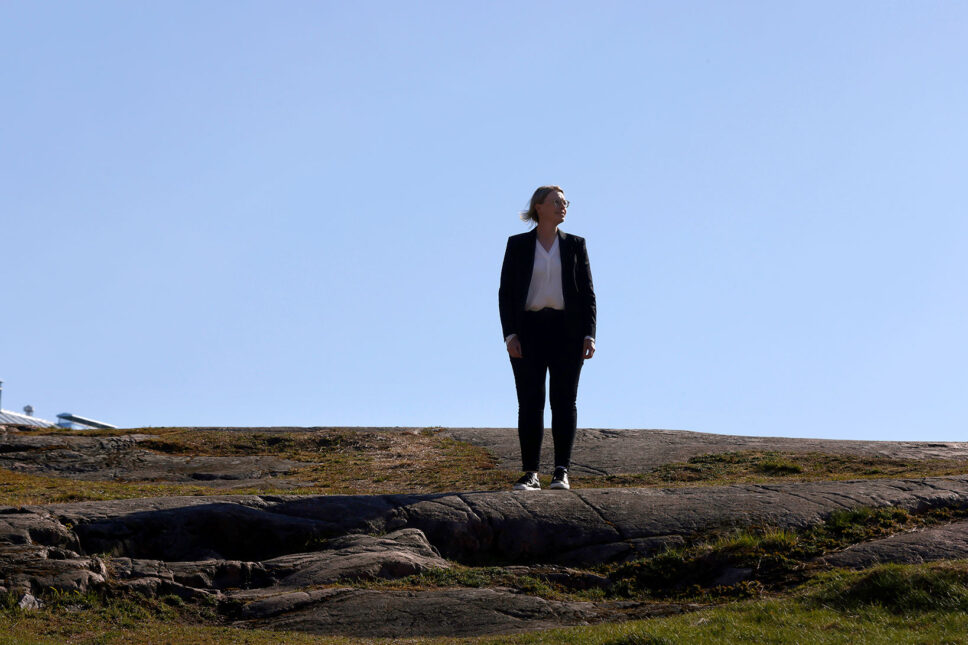Companies are experiencing a biodiversity boom: companies are interested in the threats and opportunities of impacts on nature

Is there enough water in the factory? Which species are under threat due to my company’s operations? How can we protect soil microbes more effectively? As more species are becoming endangered, company managers are increasingly concerned about biodiversity. Tiina Kähö, Senior Principal at AFRY, encourages companies to take an interest in biodiversity impacts before EU regulation forces their hand.
Company managers have never been more interested in biodiversity and the loss of endangered species than this year. It is as if they have switched from discussing climate issues to biodiversity overnight. What is it all about?
“A real boom seems to have begun,” confirms Tiina Kähö, co-head of sustainability consulting at AFRY, which was known as Pöyry before its merger with the Swedish company Åf.
The change of subject can be traced back to last December when the UN held a major nature conference in Montreal, Canada. This was the venue for a decision that Kähö considers just as significant as the 2015 Paris Agreement. In Paris, governments pledged to slow global warming to 1.5–2 degrees.
In Montreal, governments committed themselves to safeguard biodiversity and pledged to halt the extinction of species. These are big goals. Biodiversity is deteriorating constantly and species are going extinct.
The Paris Agreement led to legislative reform, which stimulated the business world. In recent years, companies have urged governments to take tangible action to reduce emissions.
Since then, new standards have emerged, along with reporting obligations that emphasise transparency. Europe is currently bracing for tighter regulations to safeguard biodiversity.
“Compared with climate work, the change is much faster, and the wave effects are more complex,” Kähö says.
Biodiversity taking centre stage in decision-making
Some companies began taking action earlier. However, since the start of the year, there has been a lot of new demand for services and consultants to help companies with biodiversity issues.
Tiina Kähö speaks of the evolution of awareness. The scientific community has long known that accelerating the use of natural resources as the climate warms would deplete biodiversity. In recent years, new studies have been carried out on biodiversity loss. As public understanding grows, the principle of safeguarding biodiversity is finally taking centre stage in decision-making.
“Companies are now under great pressure to understand how biodiversity loss will affect their businesses and, ultimately, the way we all live.”

Above all, people should understand what needs to change in their activities.
Tiina Kähö entered the industry more than 25 years ago and has contributed to changing the attitudes of Finnish corporate managers towards the environment.
When she began her career at a London engineering firm, climate change was still discussed in terms of the greenhouse effect, and the subject was of interest mainly to researchers.
Kähö has worked in several roles. At Sitra, she accelerated the process by which Finnish industrial operators identified the benefits of becoming carbon neutral. She is also familiar with the ways that cities and municipalities work: as the CEO of the Smart & Clean Foundation, she sped up climate action in the public and private sectors.
Four tips for companies
A year and a half ago, Kähö became co-head of the sustainability and corporate responsibility business at AFRY, a Nordic management consulting giant. The company was familiar, as Kähö previously worked at Pöyry.
“Sustainability is an integral aspect of AFRY’s business strategy. However, the greatest impact comes from projects carried out for customers. That is why it is so motivating to advise customers on the implementation of measurable climate and biodiversity actions.”
Tiina Kähö and her colleagues have their hands full with work. Customer companies need support in the face of new demands. Many management teams have realised that impacts on nature are becoming part of strategic thinking in the same way as climate impacts.
- AFRY is currently supporting Nefco, an environmental finance company, in its biodiversity pilot programme. Companies have been selected to join the programme. They will test and develop new solutions to improve biodiversity as an example of the nature-positive strategies of financial institutions.
- The companies selected for the programme will gain experience in protecting biodiversity, develop their own biodiversity management plans, and take tangible action to combat biodiversity loss.
Kähö neuvoo asiakkaitaan tarkastelemaan luonnon monimuotoisuuden muutosta suhteessa omaan liiketoimintaan uhkien sekä mahdollisuuksien kautta. Riittääkö tehtaassa vesi? Onko raaka-aineen hinta nousemassa lähivuosina kolminkertaiseksi? Millä tavalla toiminta uhkaa paikallista luontoa ja yhteisöjä? Tällaisia ovat uhkiin liittyvät kysymykset.
How to consider biodiversity in your company’s operations
- Increase understanding. Begin by taking your skills to a new level.
- Analyse the impacts. Find out the impacts of your business and its entire value chain on biodiversity. How is your business dependent on nature? If biodiversity deteriorates, how will it affect your business?
- Make a plan. Prepare a strategy, roadmap and tangible steps towards nature-positivity.
- Report. No company knows all its environmental impacts from the outset. Be honest with your stakeholders. You can also develop further steps so you know how to do better in the future.
The same phenomenon can also offer opportunities to renew business activities. How can circular economy solutions decrease the use of raw materials and chemicals and reduce emissions? The decline in water availability in the world’s major cities has already generated enormous demand for new equipment and systems with the lowest possible water consumption. Many other developments like these are underway, and pioneering companies are searching for them.
The largest impacts are often at the start of the production chain
Kähö emphasises that studying biodiversity is a systematic process for company managers – it is not rocket science. Generally, the first step is to assess the overall impact of the company’s operations. Not everything is known right away, and Kähö says this should be reported honestly.
“I recommend examining the entire value chain immediately because the largest impacts are usually at the start of the production chain, often far from Finland.”
Finnish companies that require much land use are accustomed to assessing their impacts on nature.
These include wind power operators. Kähö says they assess the environment of a potential power plant site by identifying the biotopes and natural value in the area. Identifying high-risk areas with vulnerable biotopes and endangered species is especially important. The aim is to avoid building in such areas so that the natural value is not degraded. But it is not always possible. In such cases, efforts can be made to offset the loss of biodiversity by preserving different areas.
Environmental impact assessment expertise should be utilised
Tiina Kähö points out that many companies have been carrying out environmental impact assessments in various projects for a long time. In the future, this valuable work and expertise should be systematically promoted to company-wide business development and strategic operations.
“There are not yet any clear differences between industries. We are currently in the identification and learning phases.”

The pressure to understand the impacts of biodiversity comes from many sources. Customers, financiers, investors and the authorities are interested in the impacts of a company’s operations. Legislation guides companies to disclose what has been done and what will be done next.
In this context, Tiina Kähö warns that the terminology for describing measures to prevent biodiversity loss may initially seem labyrinthine (Corporate Sustainability Reporting Directive (CSRD) and European Sustainability Reporting Standards (ESRS)). Nonetheless, the EU’s gradually expanding Taxonomy Regulation, forthcoming requirements for reporting on sustainable development and the associated reporting standards play a crucial role. They will revolutionise the way companies do business in the future.
“The Directive is about much more than just reporting. It is a question of comprehensively understanding the impacts and the related financial risks,” Kähö says.
Message to the new government, companies and local authorities
- EU regulation is very strong. The Finnish government should make policies to safeguard biodiversity that are as effective, precise and long-term as possible.
- Pioneering actors will seek new business opportunities to strengthen biodiversity. Bold companies will be rewarded with competitive advantages.
- Pilot projects are an excellent way to try something new, but the results must be quickly scaled up. Local authorities play an essential role in taking effective climate and nature action. In this way, companies can also develop more climate- and nature-friendly business activities.
Text: Kaisa Viitanen
Photos: Liisa Takala
